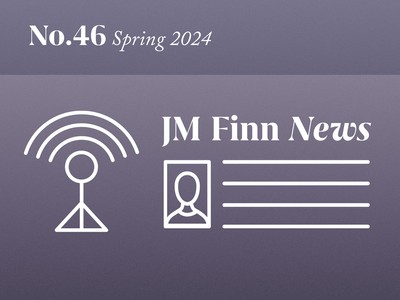With the next general election around the corner and the Labour party currently leading the polls, there is a strong likelihood we will witness a change of government this year. Labour have reiterated their 2019 manifesto pledge to remove the VAT exemption on private school fees, which would increase the cost of school fees by 20%.
Regardless of the colour of government, school fees already come at a significant cost. The Institute for Fiscal Studies (IFS) found the average private school fees across the UK in 2022-23 were £15,200 per annum (net of bursaries and scholarships), in today’s prices, and higher still for boarders.
The report refers to a 20% increase in the cost of school fees between 2010 and 2022-23, and a 55% increase since 2003. Additionally, there is a plethora of associated costs: school trips, uniforms, meals, and after school clubs, to name but a few. Most parents pay the school fees from taxed income so the real cost is even higher. To pay school fees of £15,000 you would need gross earnings of £25,000 – assuming 40% tax is deducted. It is therefore important for families to start school fee planning as early as possible. This planning involves estimating the total amount of fees you will need to pay, saving and investing wisely, and finding ways to reduce the tax burden.
During times when markets are particularly volatile, it may be wise to retain a few years’ worth of school fees.
Early planning and maximising your investment potential
The first step is to estimate how much you will need to pay over the course of your children’s education. It is important to consider how many children you are likely to be paying school fees for, when the fees will begin and end, your income and assets, possible inheritances, as well as an estimate of the level of fees and future increases. Consider too whether you will be utilising an existing lump sum, and/ or building up a pot through regular investment. Cashflow modelling can also help here.
The second step is to start saving and investing as early as possible. The sooner you start, the more time you have to benefit from ‘compounded growth’ (i.e., where income is generated both on an original investment and on returns previously generated). The best option for you will depend on your risk appetite, time horizon, and tax position. The third step is to utilise tax reliefs, allowances, and exemptions to reduce your tax burden. Where possible, use tax-efficient structures such as Individual Savings Accounts (ISAs), which allow every individual to commit up to £20,000 each year tax free. Where appropriate, investment bonds might also be a sensible, tax-deferred option.
While there are more attractive interest rates available for cash deposits in current times, long-term, investment into the stock market has historically been proven to offer the best chance of long-term growth. Nevertheless, it is important to maintain a healthy cash balance for emergencies. During times when markets are particularly volatile, it may be wise to retain a few years’ worth of school fees, to mitigate the potential pitfall of having to realise investments standing at a loss.
Tax-efficient strategies for grandparents
For some, there is also the possibility of financial assistance coming from the bank of Grandma and Grandad. School fee assistance can be a rewarding way for grandparents to provide financial support, while simultaneously reducing their own Inheritance Tax (IHT) liability. There are several strategies they can adopt here:
- Grandparents, like anyone, can gift capital lump sums away. This is a simple and effective way of potentially reducing the size of their estate. Usually, larger direct gifts will be exempt from IHT, provided the individual making the gift survives for seven years after doing so. Each individual is also entitled to give away up to £3,000 each year immediately free of IHT.
- To the extent that an individual has surplus income after tax to support this, and providing they maintain a pattern of regular gifting, gifts out of surplus income fall outside of scope for IHT calculation purposes. Gifting out of excess income ensures that capital does not continue to accrue, thus capping the potential growth of the estate.
- Trust planning can help grandparents with school fee planning, in tandem with IHT planning. This allows them to retain an element of control over the asset, including how it is invested, as well as its distribution.
- Commonly, a ‘bare trust’ (a trust created to give assets to a named beneficiary where the beneficiary cannot be changed) might be utilised, as these are among the most straightforward to set up and administer. The funds can be used for the maintenance and education of beneficiaries throughout the trust’s existence. The tax treatment of this type of trust is favourable, as it allows the beneficiaries’ own tax allowances to be used. It is not advisable for a parent to set up such an arrangement, as parental settlement rules mean that if income generated from the trust exceeds £100 per annum, all income would be taxed as though belonging to the parent. At age 18 (16 in Scotland), the beneficiary(ies), become legally entitled to their share of any residual funds.
- For added flexibility and additional control, discretionary trusts may be a consideration. The tax treatment of this form of trust is more complex: there is additional ongoing administration, potential tax and associated costs. Under the right circumstances, these are however, a useful planning tool.
- An option for parents and grandparents to consider to help fund university fees is Junior ISAs (JISAs). £9,000 can be subscribed each year, and the fund grows free of any tax. A potential downside is that the funds belong to the child and they can access the funds at age 18 to spend as they wish.
Financial protection
This area of planning is often overlooked but is particularly important to consider if you will have to fund school fees out of earnings on a ‘pay as you go’ basis. Products such as life assurance, critical illness cover, and income protection can all serve to protect the means through which school fees are met, should the worst happen. Many workplaces offer such benefits to a degree, and it is wise to consider whether that level of cover is sufficient, noting too, that should you move employment, that cover provided by the employer would cease. The JM Finn Wealth Planning team can help you ascertain which insurance products are most appropriate for your circumstances, as well as a suitable level of cover.
A final step is to check if your child or grandchild qualifies for any financial assistance such as bursaries or scholarships. Schools will be able to provide you with information on eligibility.
The above is not exhaustive, and there is no one-size-fits-all solution to such planning. If this is an area for you or your family to consider and you would like guidance or advice, please speak to your Investment Manager to arrange a meeting with one of our Wealth Planners.
The information provided in this article is of a general nature and is not a substitute for specific advice with regard to your own circumstances. You are recommended to obtain specific advice from a qualified professional before you take any action or refrain from action.



